News
Rising taxes weigh heavy on minds of weary people ahead of budget
View(s):By Sohan Vipulananda and Senuka Jayakody
More burdens were imposed on people including low-income earners on Friday, when auto diesel and kerosene oil prices were increased by Rs 15 and Rs 25 per litre.
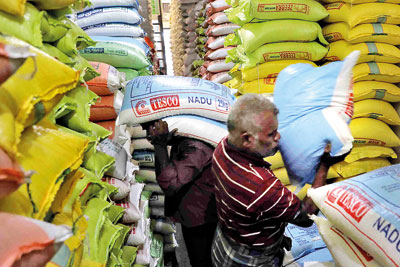
Wholesale rice business has dropped because people do not have money, despite lower prices of rice. Pix by M.A. Pushpa Kumara
A cross section of trade unions and people who spoke to the Sunday Times ahead of the budget presentation by President Ranil Wickremesinghe, expressed their expectations and concerns. Many want the taxes trimmed.
Ceylon Teachers Union General Secretary Joseph Stalin wants the greater focus on health and education, but is sceptical. “We do not believe that the budget will be able to solve any problem.’’
He said that only one-third of the teacher salary increases have been paid, while prices of consumer goods have tripled.
A system to provide pensions for public officials retiring on December 31, 2022, which includes 10,000 teachers, has not been set up yet.
Mr. Stalin said that the education sector includes other expenditure such as for textbooks, costing around Rs. 16 billion. And the Government is acting without statistics to solve malnutrition.
The secretary of the All Island Farmers Federation, T. B. Sarath said the budget should increase the amount of fertiliser. So far, only 14 kilos of the 20kg of urea promised per acre had been provided. But, 80 kg is needed.
And not even a kilo of the promised 22kg of muriate of potash has been provided, he said.
“Only the ministers will benefit. The budget is when ministers get auctioned. The budget is of no use if the result is lack of food,’’ Mr Herath said.
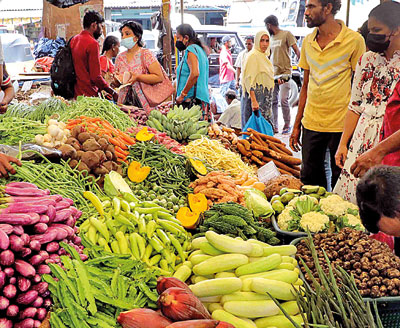
There's little or no hope among consumers that prices will come down with tomorrow's Budget
All Island Three Wheeler Drivers Union secretary, T. R. Pallie said the union is supporting the Government to lower the cost of living.
“We have a stable income only if people have money, and can pay for three- wheelers without thinking of what to eat,’’ he said.
All Ceylon School Children’s Transport Association secretary, Lalith Chandrasiri Fernando, hopes the price of diesel will be cut to at least Rs. 300 per liter, from Rs. 415, since the price of spare parts have increased by 300%. A tyre which cost Rs. 23,000 before, now sells for Rs. 94,000.
The Government Medical Officers Association (GMOA) has submitted many proposals.
Among them is data related to providing mid-day meals only for the needy children, and the introduction of digital services to solve medicine shortages.
Another proposal to establish clinical travel medicine, which would bring in foreign exchange was also submitted.
Dr. Chamil Wijesinghe, media spokesman of the GMOA, said those in the field would be able to secure foreign employment.
The GMOA proposed attracting foreigners to undergo treatment in Sri Lanka, through the establishment of centres of excellence, also involving Ayurveda.
To counter the brain drain of medical professionals they should be provided with adequate fuel and obstacles against post-graduate studies should be eliminated, the group said.
The president of the All Island Poultry Farmers Association, Ajith Gunasekara, suggests duty-free imports of animal feed, so that exporters could be more competitive. 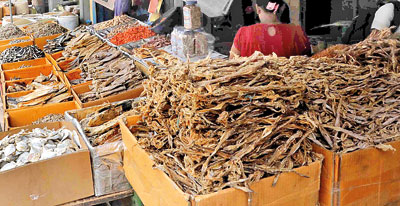
He said Sri Lanka is self-sufficient in chicken, with the consumption of the annual 10kg of chicken per person fulfilled. Also, Rs. 15 billion has been invested. And absence of bird flu enables Sri Lanka to, “export even from next month onward’,” he said.
Mr. Gunasekara also proposed less taxes on the poultry industry, to restart farms which have closed.
The president of the Ceylon Bank Employees Union, Channa Dissanayake prefers state bank reforms and a halt to political appointees.
The president of the Coconut Growers Association of Sri Lanka, Mr Jayantha Samarakoon expects the Government to provide 50kg of fertiliser for between Rs. 10,000 and Rs. 15,000, instead of Rs. 30,000.
Coconut exports earned US$850 million last year and growers are targeting US$1 billion this year.
“We do not expect subsidies, like previous times, because the Government has a larger economic problem,’’ he said.
The president of the Trade Association of the Dambulla Economic Center, Shantha Ekanayake, proposes fair-priced fuel and fertiliser for farmers, since the price of weedicides and fuel have increased by around five times.
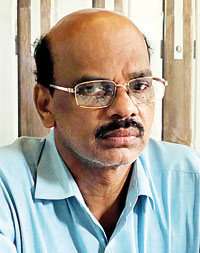
Premadas Prem
“If the government gives first priority to agriculture, the country will be up in two years,’’ he said.
The president of the Locomotive Operating Engineers Union, K. A. U. Konthasinghe, hopes for more funds for rail infrastructure on a short-term basis and that rail will be used to transport vegetables. “The budget can save the railway service from collapse,’’ he said.
A senior official from the Sri Lanka Petroleum Dealers Association said taxes will affect the profit margins since dealers have a small percentage of commission, while the Finance Secretary had said tax might be reduced in two-and-a-half years.
Jaffna District Fishermen Association president Annalingam Annarasa does not believe the budget will help as subsidies were not provided as promised in the interim budget. “This budget is to convince the IMF, not for the people.’’
“No matter which Government comes up with a new budget, they will never hear the voices of Jaffna fishermen’s struggle,’’ he said.
A salesman at a rice wholesaler, Premadas Prem, said business has dropped because people do not have money, despite lower prices of rice, sugar, and other commodities.
“If taxes are reduced prices would drop, too,’’ he said, explaining that cutting the price of fuel and loading charges will allow the further reduction of prices.
A retired principal, Srinath De Silva said the budget should consider development and citizens, with food as a prime concern, as well as healthcare, electricity and water.
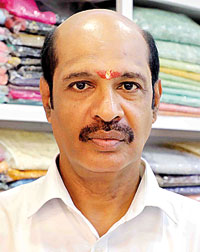
Clothes shop sales assistant, S. Vimalakaran
“We are facing the results created by the rulers that people elected with hopes, and officials, who had no concern for the country, citizens or the future. If this continues, there would be no country, people, rulers, or officials,’’ he said.
Clothes shop sales assistant, S. Vimalakaran, believes taxes should be cut because working people’s income is eroded.
“The price of clothes have increased. A cloth sold previously for Rs.1,000 is sold for Rs. 5,000 now. This has caused our customers to drop as well, but we have never resorted to reducing employees,” he said.
The Movement for Land and Agricultural Reform had submitted proposals on the human-elephant conflict, climate change, and ocean pollution.
A researcher of the group, Sajeewa Chamikara said “elephant fences have been built closing off elephant passes”, and proposed a proper survey and analysis.
One reason for climate change in Sri Lanka is because most of forests are not protected under the Land Reform Commission. Funds should be allocated to do a survey and buy the forest land from the LRC and bring them under the Wildlife Department and the Forest Department.
“Sri Lanka is among the top five countries in sea pollution,’’ Mr. Chamikara said, adding that funds should be allocated for waste management, based on the concepts of 5R and Zero Wastage, instead of dump sites.
Another proposal to allocate funds to establish ‘ecological farming’ in Sri Lanka by bringing in new knowledge and experimenting was submitted. While universities, the Ministry of Agriculture and various NGOs are doing experiments, Mr. Chamikara thinks it would help combat chronic kidney disease.
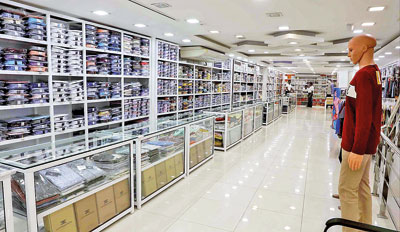
Business is low for clothe shop owners too
The best way to say that you found the home of your dreams is by finding it on Hitad.lk. We have listings for apartments for sale or rent in Sri Lanka, no matter what locale you're looking for! Whether you live in Colombo, Galle, Kandy, Matara, Jaffna and more - we've got them all!

